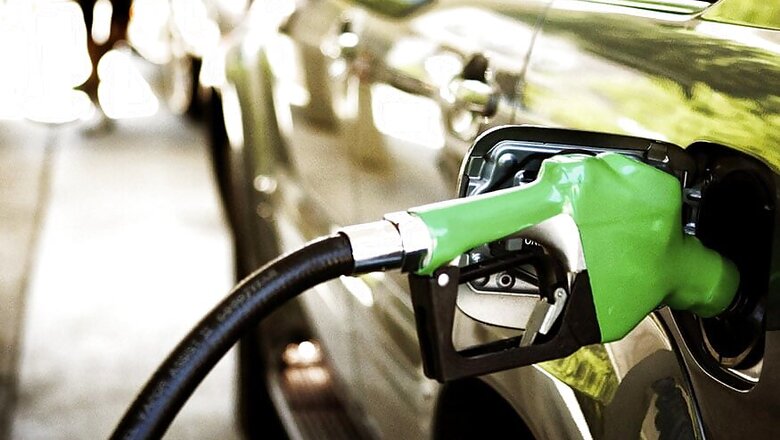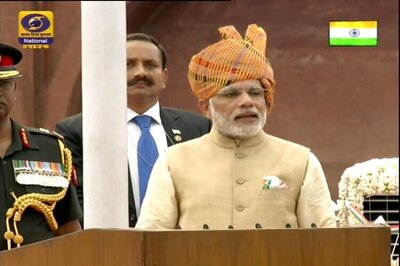
views
New Delhi: On the day Congress, supported by other opposition parties, is leading an agitation against the Modi government over rising fuel prices, the rates saw another revision on Monday with petrol selling at 80.73 per litre and diesel at Rs 72.83 per litre in Delhi. In Mumbai, petrol retailed at Rs 88.12 per litre and diesel at Rs 77.32 per litre.
The Centre currently levies a total excise duty of Rs 19.48 per litre of petrol and Rs 15.33 per litre on diesel. On top of this, states levy Value Added Tax — the lowest being in Andaman and Nicobar Islands where 6 per cent sales tax is charged on both the fuels.
Ahead of the bandh, Rajasthan Chief Minister Vasundhara Raje announced a four-per cent reduction in value-added tax (VAT) on petrol and diesel on Sunday, which will reduce their prices by Rs 2.5 per litre in the state.
Congress president Rahul Gandhi has repeatedly demanded that petrol and diesel be included in GST as this could reduce the price by Rs 10-15 per litre.
Since mid-August, petrol price has risen by Rs 3.24 a litre and diesel by Rs 3.74 per litre as rupee hit record low against the US dollar, making imports costlier.
According to sector experts, a weak rupee along with high excise duty have been major factors for the rise in fuel prices. On the currency front, the Indian rupee settled above 70 to a US dollar in the spot market for the week ended Friday. It closed at 71.73, stronger by 26 paise than its previous close of 71.99 per greenback.
Apart from the weak local currency, the high global crude oil cost has become a major concern for the country which is a net importer of oil.
Implication wise, the rise in diesel prices is expected to flare up inflationary pressure as the fuel is primarily used to transport the majority of goods, including agriculture products.
As per the country's pricing mechanism, the domestic fuel prices are dependent upon the international fuel prices on a 15-day average and the impact of the rupee-US dollar fluctuations.




















Comments
0 comment